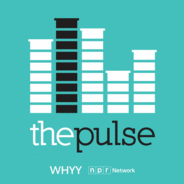There are countless hidden forces that affect how we behave, the choices that we make, and the general shape of our lives. On this episode, we take a deep dive into some of those forces. We hear stories about mirroring and how it affects our interactions, whether implicit bias trainings actually work, and how hierarchies influence productivity.Learn more about sponsor message choices: podcastchoices.com/adchoicesNPR Privacy Policy

Wissenschaft & Technik
The Pulse Folgen
Go on an adventure into unexpected corners of the health and science world each week with award-winning host Maiken Scott. The Pulse takes you behind the doors of operating rooms, into the lab with some of the world's foremost scientists, and back in time to explore life-changing innovations. The Pulse delivers stories in ways that matter to you, and answers questions you never knew you had.
Folgen von The Pulse
177 Folgen
-
Folge vom 30.08.2024The Hidden Forces That Shape Our Behavior
-
Folge vom 23.08.2024Virtual Worlds, Virtual LivesOn this encore episode of The Pulse - We're in a major technological revolution where artificial intelligence, gaming, and virtual reality are allowing us to create and enter totally new spaces and have new experiences.But as these worlds grow bigger, more intense, and more consuming, they're also raising questions about what this new future will look like.Learn more about sponsor message choices: podcastchoices.com/adchoicesNPR Privacy Policy
-
Folge vom 16.08.2024The Promise and Future of Psychedelics ResearchInterest in using psychedelics for mental health treatments has taken off in recent years — but the field was just dealt a major blow on August 9, when the Food and Drug Administration rejected a bid by Lykos Therapeutics to approve the first-ever MDMA treatment for PTSD. The agency said it needed more research to show that the drug was safe and effective. The decision means that an active research community that has formed over the last few decades will likely continue as it started — more underground than above ground.On this episode, we look at the latest on psychedelics and mental health, along with the challenges to moving the research forward. We hear stories about the battle over MDMA, new questions about whether ketamine can actually help treat depression, and a group that says it's found the solution to cluster headaches in psilocybin.Learn more about sponsor message choices: podcastchoices.com/adchoicesNPR Privacy Policy
-
Folge vom 09.08.2024The Big Chill and the Future of RefrigerationWe've only been able to harness the cold for our benefit for a little over 100 years, but innovations like refrigeration and air conditioning have completely transformed the way we live and eat.A massive cold chain makes it possible to buy salmon from Alaska, grapes from Chile, and cheese from Italy; to have sushi in Kansas and ice cream in the summer. Air conditioning allows us to function and to be comfortable during the hot summer months. But it all comes at a cost, and not just financially. Refrigeration and air conditioning use a lot of energy, and that's a problem in our ever-warming world.On this episode, we look at how advances in cold technology have shaped our lives and changed the world — for better and for worse. We hear about working in a cold storage warehouse and the smell of frozen pizzas; about super-cold "blast" freezers that can bring us fresher seafood and reduce waste; and about the race to develop more sustainable air conditioners. We'll also find out what it actually looks like to have your body cryonically preserved.Learn more about sponsor message choices: podcastchoices.com/adchoicesNPR Privacy Policy
